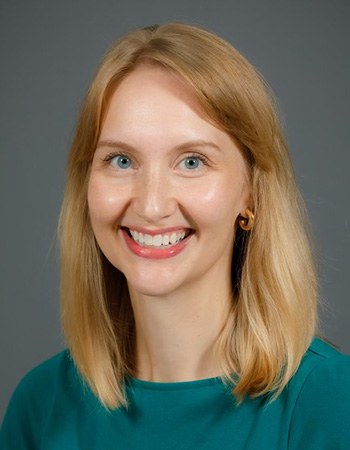9/7/2023 10:22:09 AM
St. Paul – Minnesota Department of Employment and Economic Development (DEED) Commissioner Matt Varilek announced today a set of changes to the portfolios of two senior agency leaders to better align with their responsibilities and oversight as DEED implements a historic set of investments and programs for Minnesota workers and businesses.
Effective immediately, Elizabeth Frosch, DEED's Assistant Commissioner of Operations, will serve as Deputy Commissioner and Chief Operating Officer. Evan Rowe, DEED's Deputy Commissioner for Workforce Services and Operations, will now be Deputy Commissioner for Workforce Services and Transformation, overseeing a portfolio that includes existing services such as Unemployment Insurance and State Services for the Blind, as well as the new Paid Family and Medical Leave division.
"DEED's mission to empower the growth of Minnesota's economy, for everyone, has never been more important. We have a historic opportunity to bring more jobs, workers and opportunities to our state," said DEED Commissioner Matt Varilek. "We need to be set up to meet the moment and deliver for all Minnesotans. That starts from the inside, which is why I am making organizational shifts to best position DEED for success in the months and years ahead."
 As Deputy Commissioner and Chief Operating Officer, Frosch will oversee the Operations division, which encompasses the internal and external DEED services that help all teams at the agency fulfill its mission.
As Deputy Commissioner and Chief Operating Officer, Frosch will oversee the Operations division, which encompasses the internal and external DEED services that help all teams at the agency fulfill its mission.
Frosch has served as Assistant Commissioner since March, reporting to Rowe and overseeing DEED's Administrative and Financial Services, Human Resources, Communications, Office of Diversity and Opportunity, Office of Public Engagement and Office of People and Culture. In her new role, those offices will continue to report to Frosch, and she will now oversee the General Counsel's Office and report directly to Commissioner Varilek.
Frosch has extensive government and nonprofit leadership experience. After working in the St. Paul Mayor's Office and U.S. Senate, Frosch served in organizational leadership positions for two leading national nonprofits. She joined DEED in May 2019 as Director of Strategic Communications and Research before becoming Chief of Staff in August 2020. Frosch earned her bachelor's degree from St. Olaf College and holds a master's degree in public management from Johns Hopkins University.
"As Commissioner, I rely on Elizabeth daily to ensure DEED is operating efficiently to deliver the services Minnesotans count on," Varilek said. "Her years of government and nonprofit leadership experience bolster her expertise and strategic vision for helping DEED and all Minnesotans succeed, and I'm excited to work with her as we enhance our service to Minnesota."
 Rowe's title is changing to Deputy Commissioner for Workforce Services and Transformation, reflecting his work advancing the customer-centric evolution of key existing services, as well as launching the new Paid Family and Medical Leave program in 2026.
Rowe's title is changing to Deputy Commissioner for Workforce Services and Transformation, reflecting his work advancing the customer-centric evolution of key existing services, as well as launching the new Paid Family and Medical Leave program in 2026.
In addition to Paid Family and Medical Leave, Rowe oversees important programs that provide workforce services to Minnesotans, including Unemployment Insurance, Vocational Rehabilitation Services, State Services for the Blind and Disability Determination Services. He also directs internal programs to ensure DEED is meeting the moment for customers, including Performance and Technical Management, Customer Innovation and Minnesota IT Services at DEED.
Rowe has been at DEED since 2020, first serving as Assistant Commissioner for Operations, where he led administrative functions, before being elevated to Deputy Commissioner in 2022. Prior to joining DEED, he worked at the Massachusetts Bay Transportation Authority and Google. He is a graduate of Carleton College and Harvard Business School.
"Under his strong leadership, Evan's team continues to transform the way we deliver nation-leading service to Minnesotans and support critical business and digital transformation efforts across the agency," Varilek said. "I trust Evan to help DEED meet the historic opportunity we have to improve lives and create a more equitable economy."